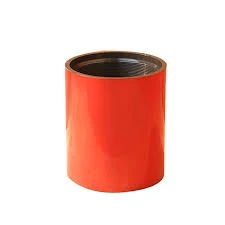- Afrikaans
- Albanian
- Amharic
- Arabic
- Armenian
- Azerbaijani
- Basque
- Belarusian
- Bengali
- Bosnian
- Bulgarian
- Catalan
- Cebuano
- Corsican
- Croatian
- Czech
- Danish
- Dutch
- English
- Esperanto
- Estonian
- Finnish
- French
- Frisian
- Galician
- Georgian
- German
- Greek
- Gujarati
- Haitian Creole
- hausa
- hawaiian
- Hebrew
- Hindi
- Miao
- Hungarian
- Icelandic
- igbo
- Indonesian
- irish
- Italian
- Japanese
- Javanese
- Kannada
- kazakh
- Khmer
- Rwandese
- Korean
- Kurdish
- Kyrgyz
- Lao
- Latin
- Latvian
- Lithuanian
- Luxembourgish
- Macedonian
- Malgashi
- Malay
- Malayalam
- Maltese
- Maori
- Marathi
- Mongolian
- Myanmar
- Nepali
- Norwegian
- Norwegian
- Occitan
- Pashto
- Persian
- Polish
- Portuguese
- Punjabi
- Romanian
- Russian
- Samoan
- Scottish Gaelic
- Serbian
- Sesotho
- Shona
- Sindhi
- Sinhala
- Slovak
- Slovenian
- Somali
- Spanish
- Sundanese
- Swahili
- Swedish
- Tagalog
- Tajik
- Tamil
- Tatar
- Telugu
- Thai
- Turkish
- Turkmen
- Ukrainian
- Urdu
- Uighur
- Uzbek
- Vietnamese
- Welsh
- Bantu
- Yiddish
- Yoruba
- Zulu
casing threads and couplings
Casing Threads and Couplings An Overview
Casing threads and couplings are essential components in the oil and gas industry, contributing significantly to the structural integrity and operational efficiency of drilling operations. As wells reach deeper depths and encounter increasingly challenging geological formations, the design and function of these components become critical to minimizing risks and ensuring safe extraction processes.
Understanding Casing Threads
Casing threads refer to the helical grooves that are machined onto the ends of casing pipes. These threads facilitate the connection between individual casing lengths, or sections, to form a continuous barrier within the wellbore. The casing itself is a large-diameter pipe that is installed in the drilled hole to stabilize the well, prevent collapse, and protect freshwater aquifers from contamination.
There are different standards and types of casing threads, such as API (American Petroleum Institute) standard threads and premium threads. API threads are commonly used and are characterized by their simplicity and cost-effectiveness. However, they have limitations in high-pressure and high-temperature environments. Premium threads, on the other hand, offer enhanced sealing capabilities and resistance to differential sticking, making them suitable for more demanding conditions.
The Role of Couplings
Couplings play a vital role in connecting sections of casing pipes together. They are short lengths of pipe, typically with the same internal and external diameters as the casing itself. Couplings can either be threaded or welded, depending on the requirements of the drilling operation. Threaded couplings allow for quick assembly and disassembly, facilitating easier transportation and handling on drilling rigs.
One of the critical functions of couplings is to ensure pressure integrity along the entire length of the casing string. A well-installed coupling must withstand the mechanical stresses imposed during drilling and production, including internal pressure, external loads, and thermal expansion. The quality of the couplings used can significantly affect the overall safety and reliability of the well.
casing threads and couplings

Importance of Thread and Coupling Design
The design of casing threads and couplings must consider several factors, including the type of fluids being extracted, the geological conditions of the drilling site, and the thermal properties of the materials used. Engineers utilize advanced software and computational models to simulate the stress and strain experienced by these components under realistic operating conditions.
Innovations in materials science have also led to the use of high-strength alloys and coatings that can enhance the performance of casing threads and couplings
. For instance, protective coatings can prevent corrosion, which is a significant concern due to the aggressive nature of some well fluids.Challenges and Future Trends
Despite advancements, challenges remain in the design and use of casing threads and couplings. Issues such as thread wear, galling, and the potential for leaks can compromise well integrity. Continuous advancements in manufacturing technologies, including the use of automated machining processes and strict quality control measures, are essential to overcome these challenges.
Moreover, as the industry moves towards more sustainable practices, the use of casing threads and couplings made from eco-friendly materials and processes is gaining traction. Research into biodegradable and recyclable materials may pave the way for a more sustainable approach in well construction and maintenance.
Conclusion
Casing threads and couplings are fundamental elements in the oil and gas sector, directly influencing the safety and efficiency of drilling operations. As technology continues to evolve, so too does the design and manufacturing of these critical components. The industry must adapt to changing environmental regulations and technological advancements to ensure that casing threads and couplings not only meet current demands but also promote future sustainability. The ongoing focus on innovation will undoubtedly enhance well integrity and operational performance, ultimately leading to safer and more efficient extraction processes.
-
Tubing Pup Joints: Essential Components for Oil and Gas OperationsNewsJul.10,2025
-
Pup Joints: Essential Components for Reliable Drilling OperationsNewsJul.10,2025
-
Pipe Couplings: Connecting Your World EfficientlyNewsJul.10,2025
-
Mastering Oilfield Operations with Quality Tubing and CasingNewsJul.10,2025
-
High-Quality Casing Couplings for Every NeedNewsJul.10,2025
-
Boost Your Drilling Efficiency with Premium Crossover Tools & Seating NipplesNewsJul.10,2025







